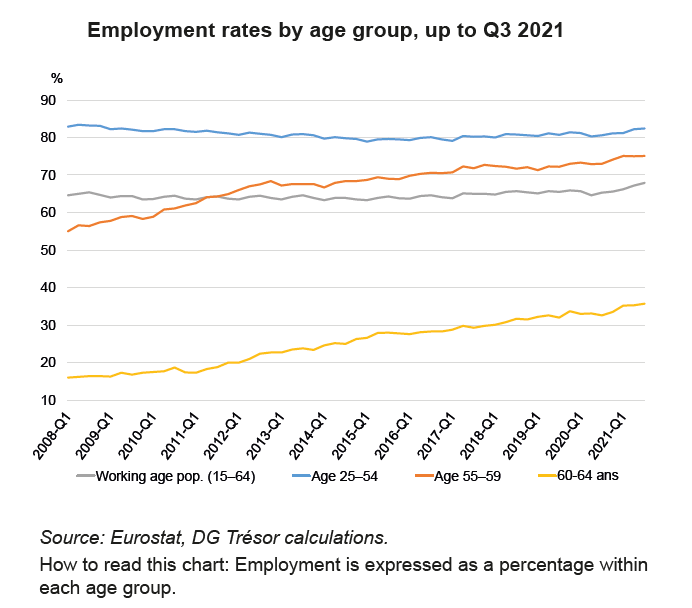Senior Employment in France
In France, the employment rate of people aged 55 and over is increasing steadily, but it remains low in comparison with Europe after the age of 60. In addition to a relatively early retirement age, other conditions linked to the labour supply of older people may explain this lower activity: arduousness, weak financial incentives. On the demand side, the gap (real or perceived) between productivity and remuneration and discrimination must be mentioned.
While France’s employment rate for the seniors (aged 55 and older) has been steadily increasing, it remains low compared to other European countries, particularly in the over-60 age group. This can be explained by France’s lower average pension eligibility age. Also, while seniors are less likely to be unemployed than other age groups, they are also less likely to find work after a period of unemployment.
Demand for senior workers is constrained by a number of factors. For example, declining employability with age, whether real or perceived, is likely compounded by lower rates of vocational training in later working years, which limits options for job adjustments. Additionally, in cases where wage levels are not tied to productivity (e.g. if determined by a salary scale), it can drive down employer demand.
On the supply side, unemployment benefit rules designed to better protect seniors may financially disincentivise some people from seeking employment in later working years.
For some jobs, a lack of ageing-friendly working conditions can also cause people to exit the labour market early: seniors who are unemployed but not yet retired are more likely to report ill health than those who are employed, a state of affairs that appears to be more predominant in France than in its European neighbours.
